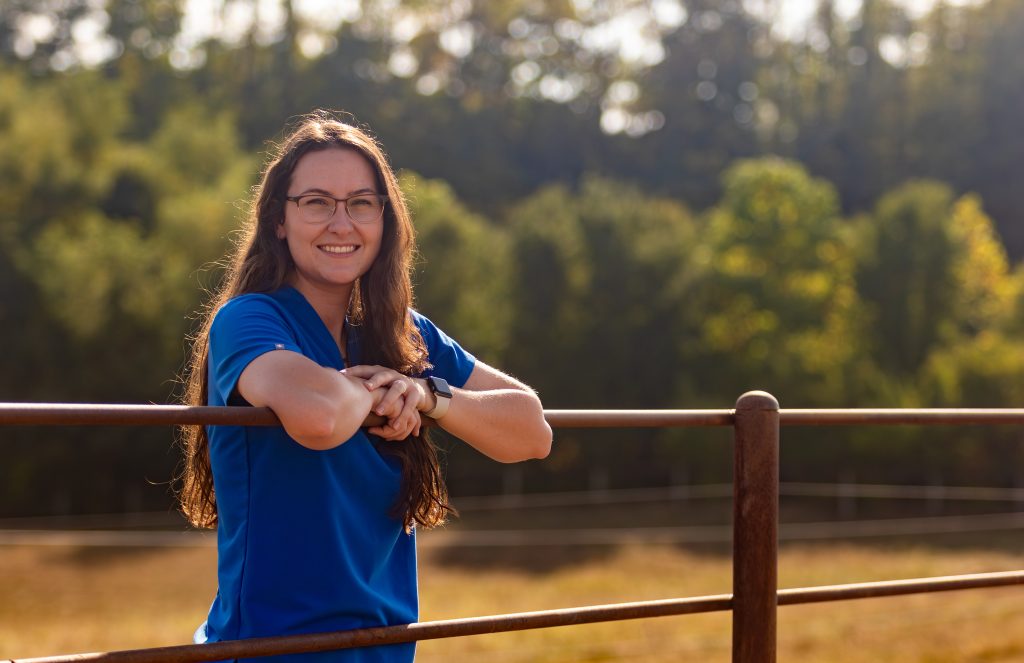Published on

Story contact: Rachel Becker, CVMMarCom@missouri.edu
Photos by Karen Clifford
For Baylee Stapleton, veterinary medicine isn’t just a career choice — it’s a lifelong calling. Growing up in a rural community surrounded by farm animals, she spent her early days showing cattle, competing in rodeos and caring for the creatures that defined her way of life. In a place where mixed animal veterinarians were few and far between, she saw firsthand how essential their work was — and knew from an early age that she wanted to be one of them.
Stapleton came to the University of Missouri from Izard County, Arkansas, where aspiring veterinarians must look beyond state lines for their education. She pursued her undergraduate degree with veterinary school in mind, selecting Animal Science to build the foundation she’d need. At Mizzou, Stapleton earned a bachelor of science in animal sciences degree and is now studying at Mizzou’s College of Veterinary Medicine.
“Growing up, I had several occasions where, as a cattle owner, I needed a veterinarian and had to drive over an hour to find someone who would see a large animal on emergency,” Stapleton said. “I want to be that resource back home, or any rural area really.”
Learning by doing
A major factor in Stapleton’s decision to choose Mizzou was its emphasis on real-world training. The College of Veterinary Medicine follows a 2+2 model, with the first two years focused on classrooms and laboratories and the final two years spent in immersive clinical experiences.
“The 2+2 program is a game-changer because it gives students an additional year of practical experience working directly with clients and animals,” Stapleton said. “I’m entering my final year of school and have already got as much experience as many graduating veterinarians from other institutions.”
In addition to her scheduled curriculum, Stapleton has taken advantage of multiple extracurricular learning opportunities the college offers, including wet labs with the Small Ruminant Club and the Theriogenology Club. She said these sessions supplement her classroom learning by giving additional practical training in a low-risk environment.
These opportunities also gave her early exposure to specialized equipment and procedures. Her training has included hands-on equine and bovine palpation labs, along with early experience using transrectal ultrasonography.
By participating in wet labs and practicing health care with a local herd, she has been able to turn classroom knowledge into practical, field-ready skills.
Preparing the future veterinarians
In the future, Stapleton would like to move back home and eventually own her own veterinary medicine practice. She said her time at Mizzou has helped her build the confidence to follow that dream.
“The Mizzou CVM has prepared me and my classmates to be really well-rounded veterinarians,” she said. “The wide variety of cases we see in clinical rotations teaches us to think like doctors and gives us new learning opportunities every day. That experience makes me confident I’ll be ready to serve my community.”
Through those experiences Stapleton has grown the confidence to step into her future role, knowing she is prepared to serve both animals and the people who depend on them.
“I’m proud to have chosen a career that lets me give back to my rural community,” Stapleton said. “Thanks to the training I’ve received at the Mizzou CVM, I feel prepared to build lasting relationships with clients and serve as a trusted resource for both pet owners and farmers.”